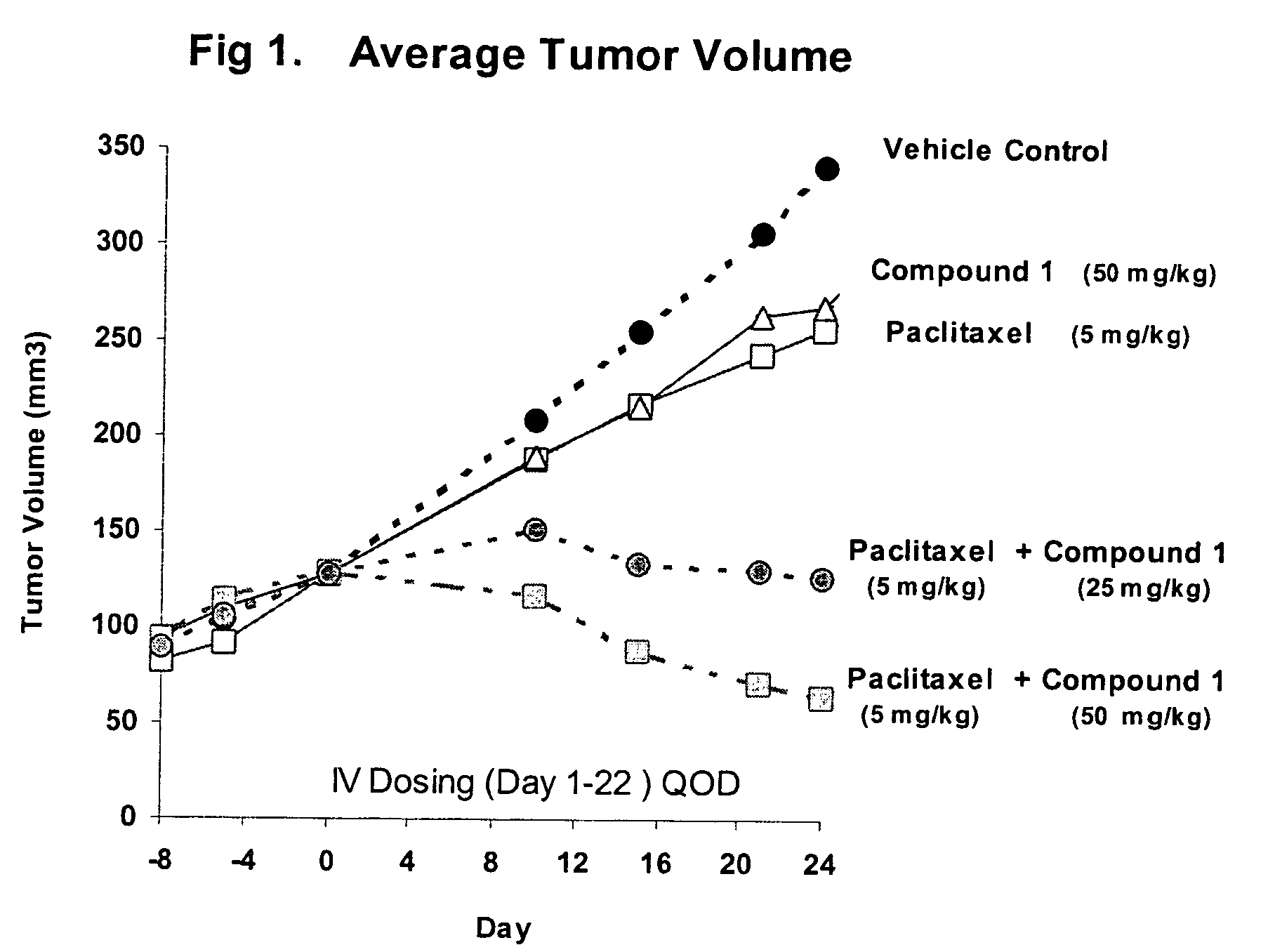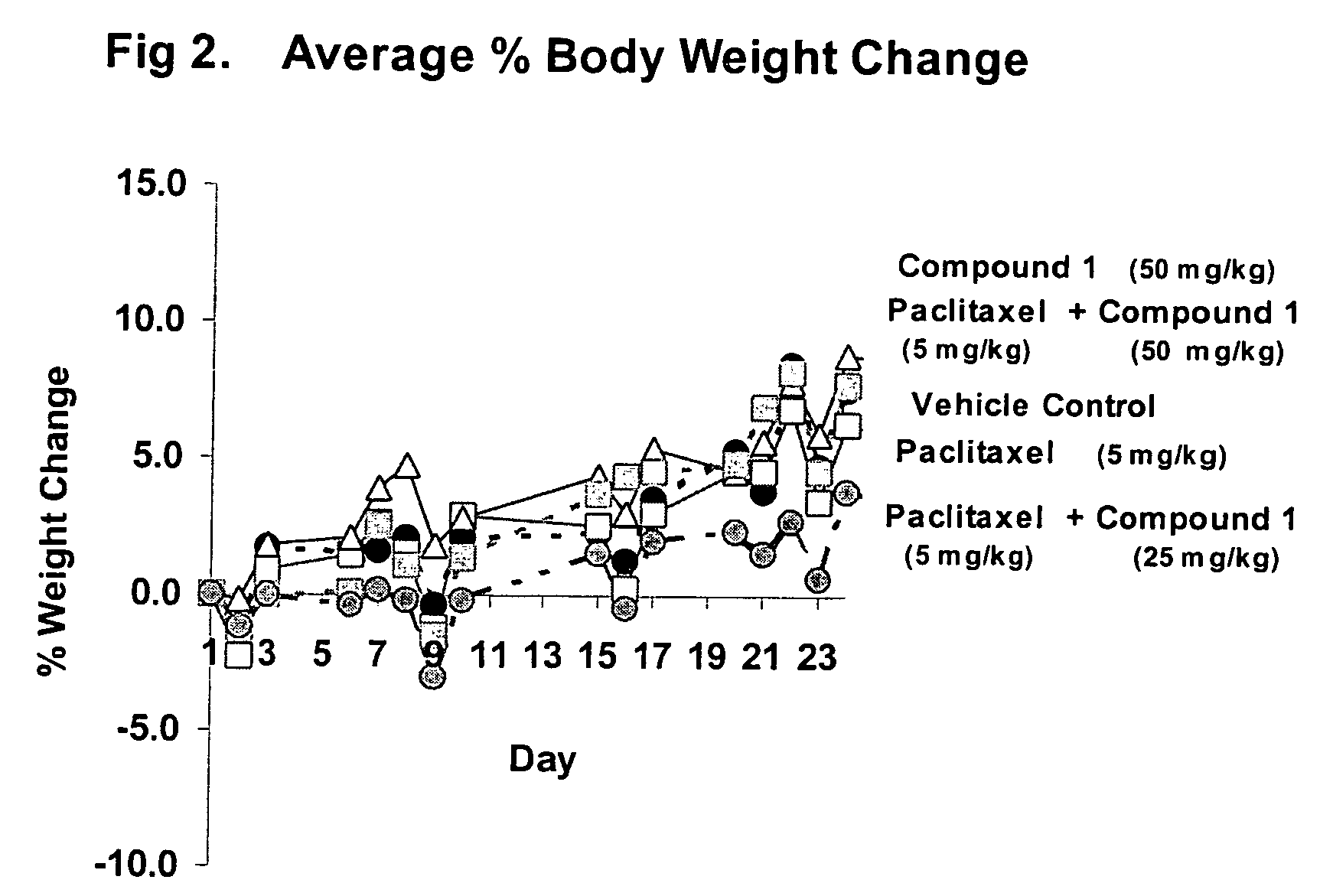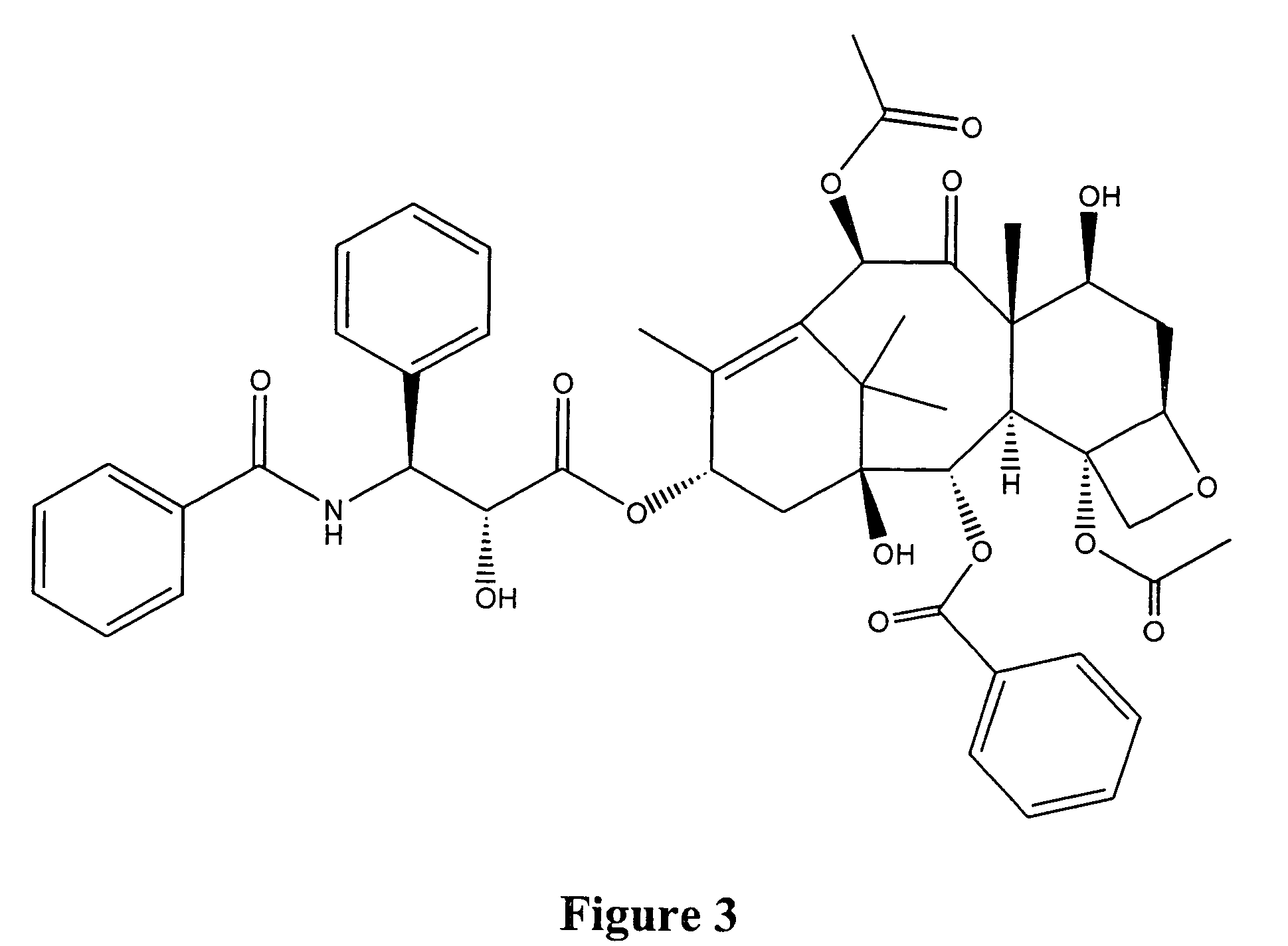Taxol enhancer compounds
a technology of taxol and enhancers, which is applied in the direction of amide active ingredients, drug compositions, medical preparations, etc., can solve the problems of general additive toxicity of anti-cancer agents, and general non-combination of certain types of anti-cancer drugs, so as to enhance the anti-cancer activity of taxol
- Summary
- Abstract
- Description
- Claims
- Application Information
AI Technical Summary
Benefits of technology
Problems solved by technology
Method used
Image
Examples
example 1
[0089]
Preparation of Thiobenzoic Acid N-methylhydrazide:
[0090]Thiobenzoic acid N-methylhydrazide were prepared in 88% yield by slight modification of the prior art (Acta Chem. Scand. 1961, 1087–1096); 1H NMR (CDCl3) δ 3.3 (s, 3H), 6.0 (s, 2H), 7.3–7.4 (m, 5H); ESMS calcd (C8H10N2S): 166.1; found: 167.1 (M+H)+.
example 2
Preparation of Thiobenzoic Acid N-methylhydrazide:
[0091]Bromobenzene (1.6 g, 10 mmol) was added into 25 ml anhydrous THF solution containing magnesium powder (0.3 g, 12.5 mmol), and refluxed for 2 hr. After it was cooled, the clear reaction solution was added into carbon disulfide (1 ml, 16.8 mmol) at 0° C., and stirred for 30 min at rt. The resulting mixture was then added into methylhydrazine (1.6 ml, 30 mmol) at 0° C., and stirred for another 2 hours. To this solution was added water (15 ml) and extracted with EtOAc (30 ml×3). The organic solution was concentrated to minimum volume, and subjected to silica gel column chromatography (eluant: 1:3–1:1 ethyl acetate: hexanes) to give thiobenzoic acid N1-methyl hydrazide (0.72 g, total yield: 48%). 1H NMR (CDCl3) δ 3.3 (s, 3H), 6.0 (s, 2H), 7.3–7.4 (m, 5H); ESMS calcd (C8H10N2S): 166.1; found: 167.1 (M+H)+.
example 3
[0092]
Preparation of 2,5-Dimethoxythiobenzoic Acid N-methylhydrazine:
[0093]DCC (4.5 g, 21.8 mmol) was added in one portion to a solution of 2,5-dimethoxybenzoic acid (3.6 g, 20 mol), methylhydrazine (1.2 ml, 23 mmol) and DMAP (30 mg, cat. ) in CH2Cl2 (60 ml) cooled in an ice bath. The reaction mixture was stirred overnight at room temperature. The slurry was cooled at −20° C. for 1 h and filtered. The CH2Cl2 solution was evaporated and the residue was dried in vacuum. The resulting crude product was dissolved in toluene (50 ml). To this solution was added Lawesson's reagent (5.8 g, 14 mmol). The mixture was refluxed for 40 min, cooled to room temperature, and directly subjected to silica gel column chromatography (eluent: 25% to 35% ethyl acetate in hexanes) to give the 2,5-dimethoxythiobenzoic acid N-methylhydrazide (3.7 g, yield: 82%) as off-white solid. 1H NMR (300 MHz, CDCl3): δ 6.88–6.80(m, 3H), 5.46 (s, 2H), 3.84(s, 3H), 3.82 (s, 3H), 3.28(s, 3H).
PUM
| Property | Measurement | Unit |
|---|---|---|
| temperature | aaaaa | aaaaa |
| temperature | aaaaa | aaaaa |
| volume | aaaaa | aaaaa |
Abstract
Description
Claims
Application Information
 Login to View More
Login to View More - R&D
- Intellectual Property
- Life Sciences
- Materials
- Tech Scout
- Unparalleled Data Quality
- Higher Quality Content
- 60% Fewer Hallucinations
Browse by: Latest US Patents, China's latest patents, Technical Efficacy Thesaurus, Application Domain, Technology Topic, Popular Technical Reports.
© 2025 PatSnap. All rights reserved.Legal|Privacy policy|Modern Slavery Act Transparency Statement|Sitemap|About US| Contact US: help@patsnap.com



